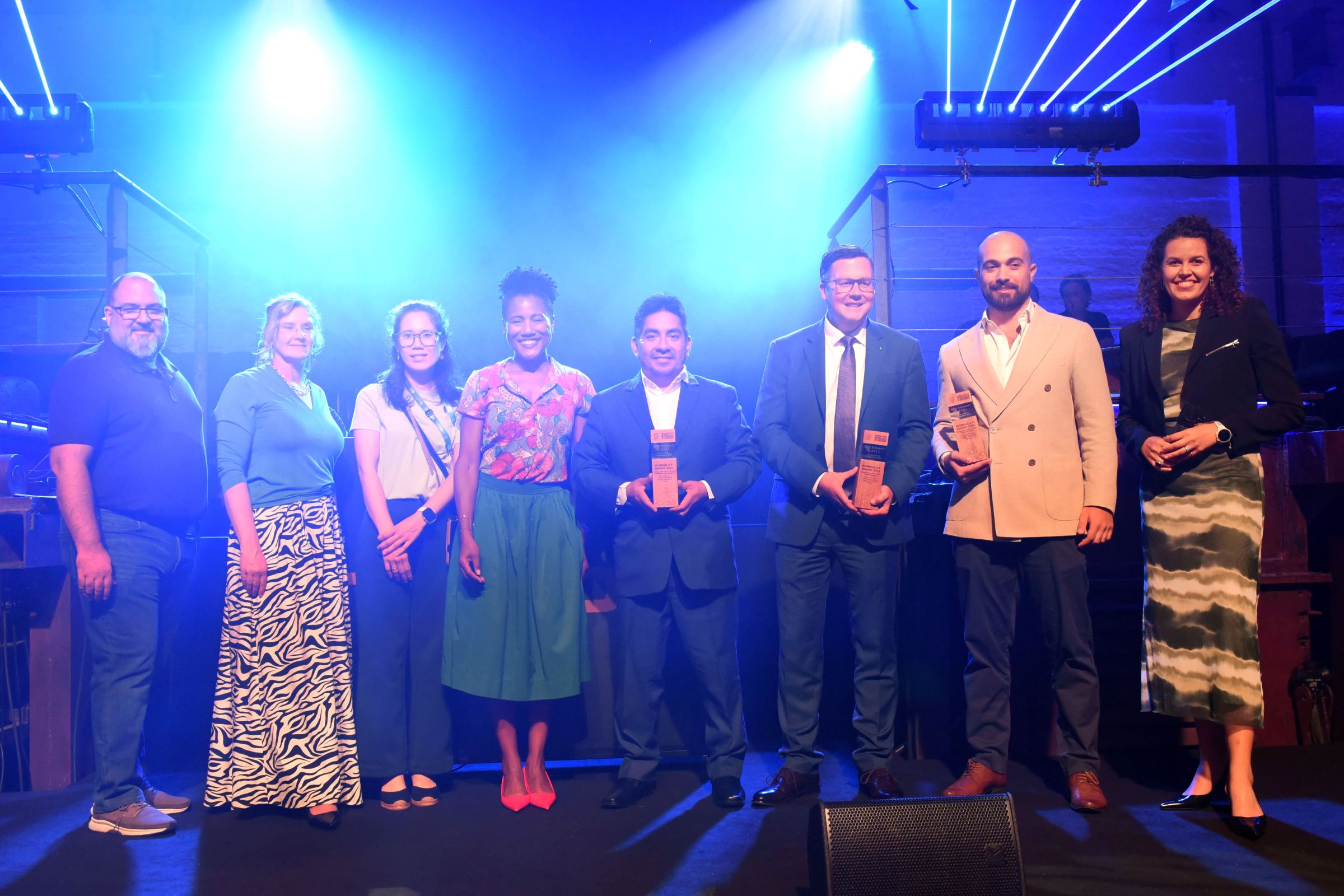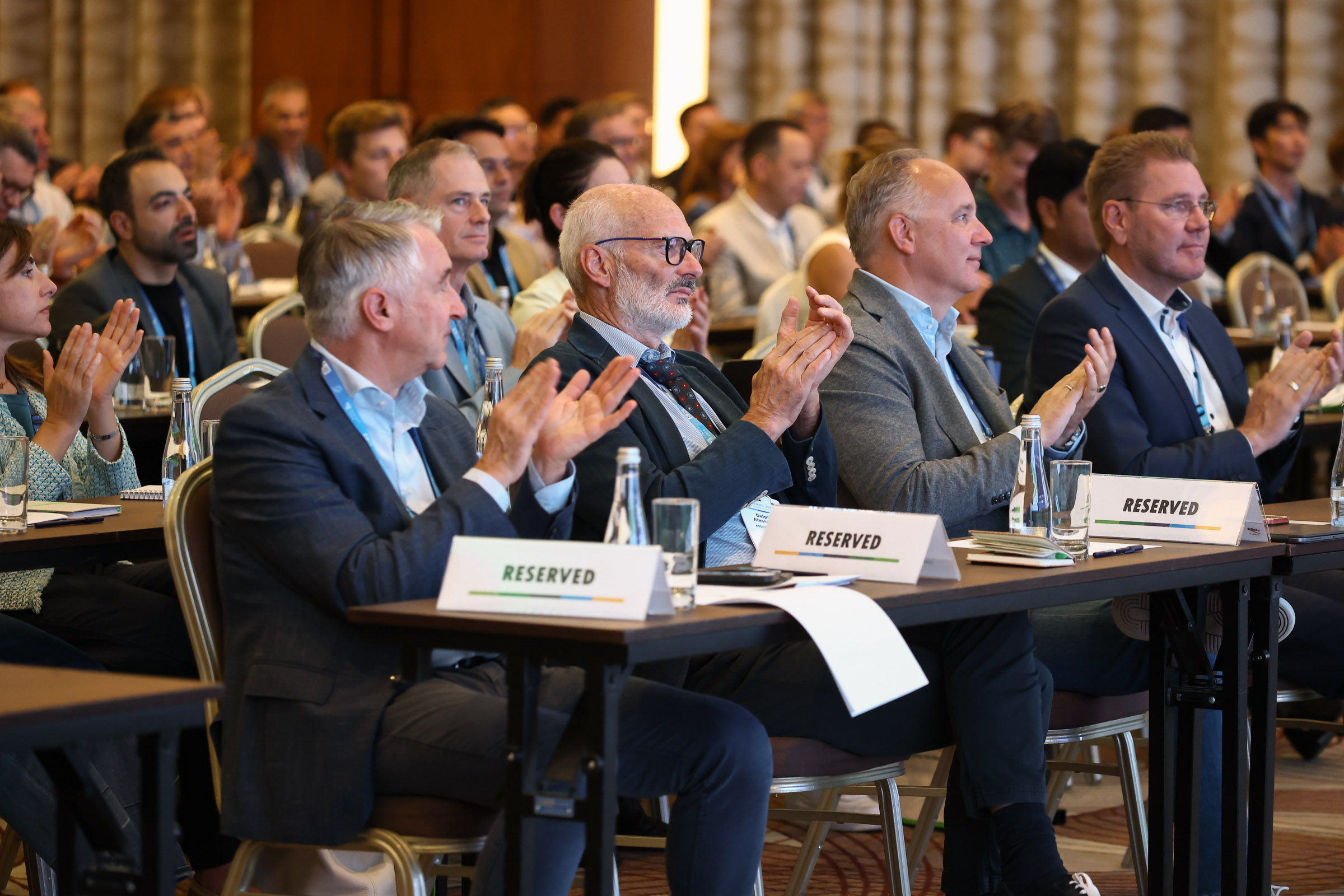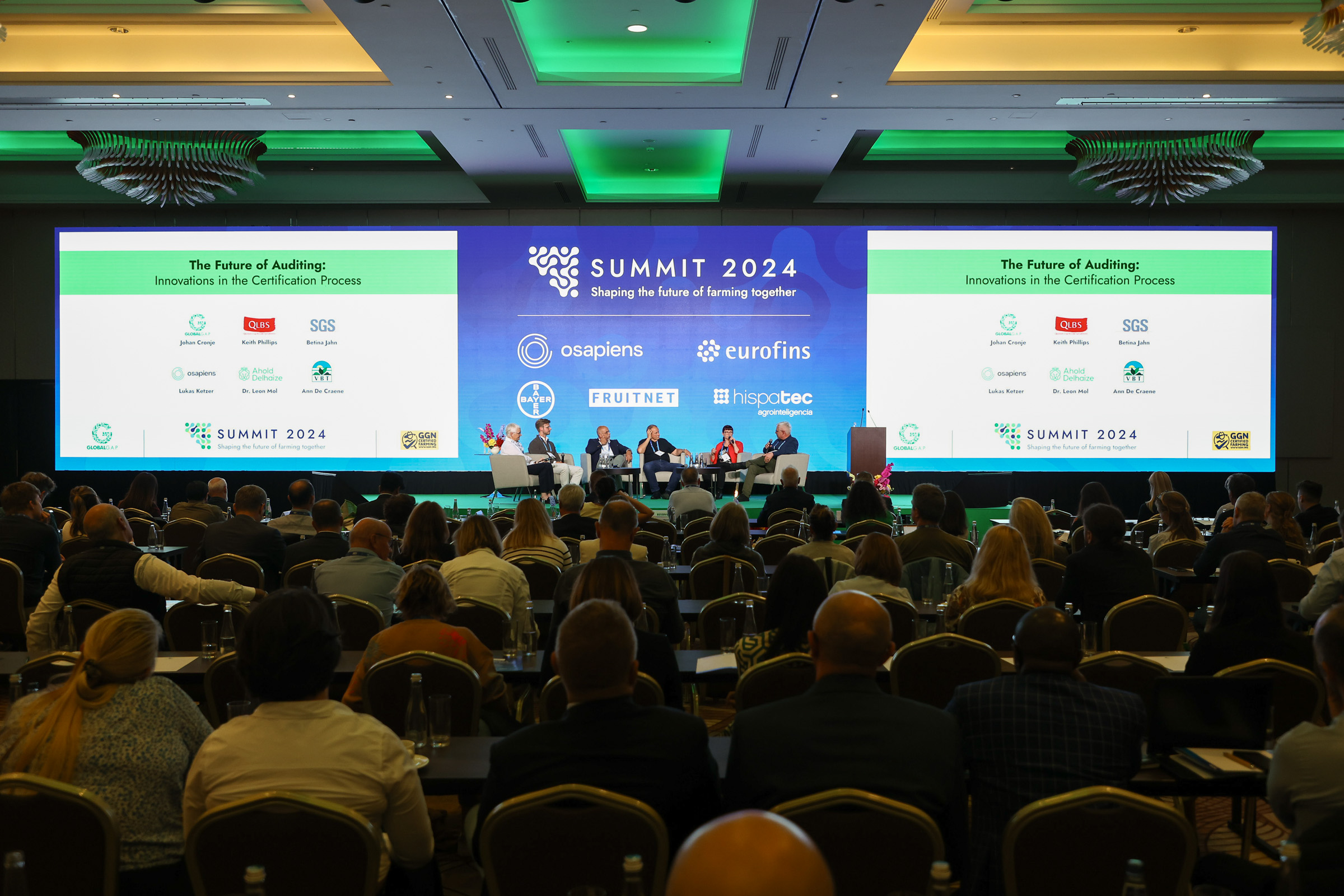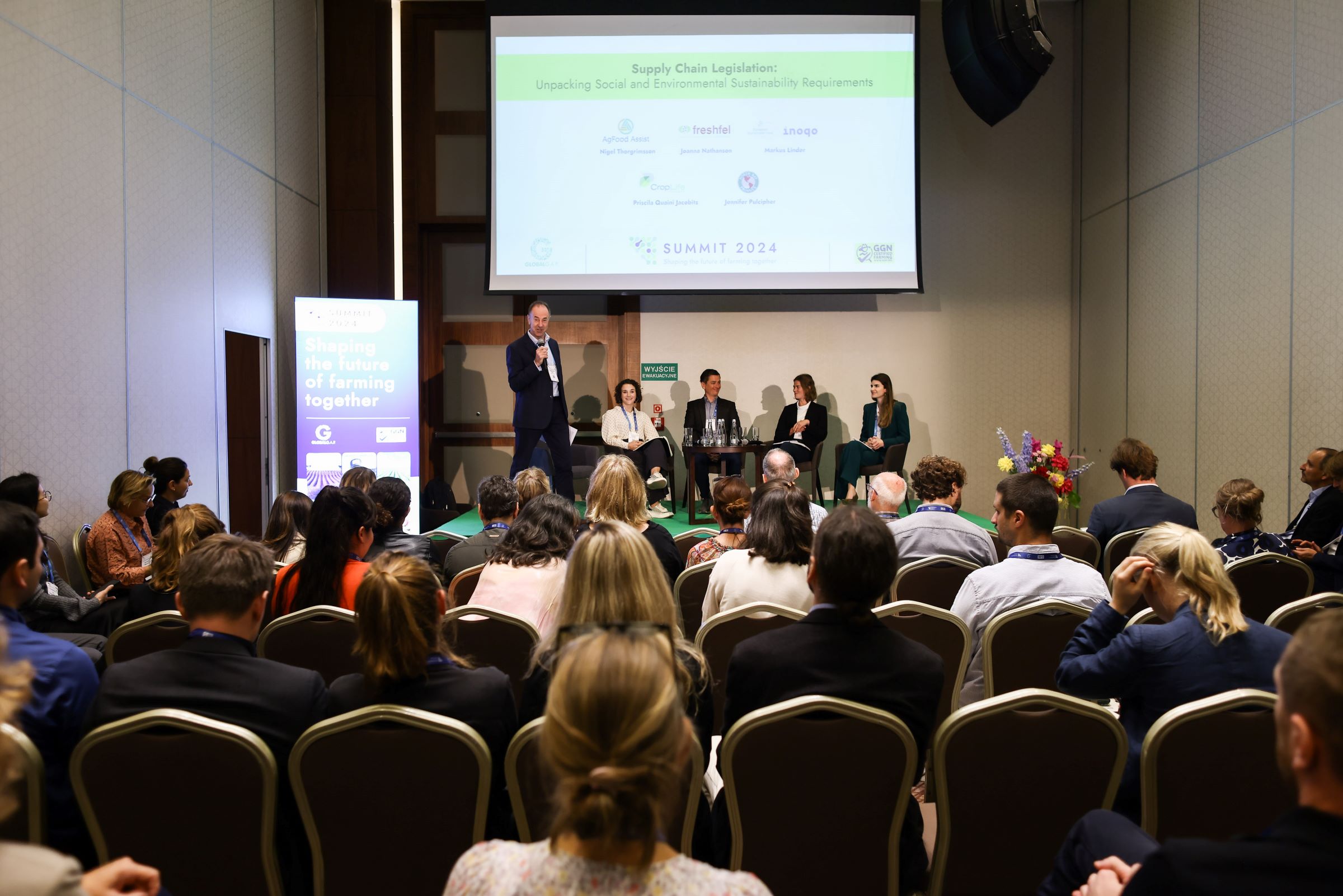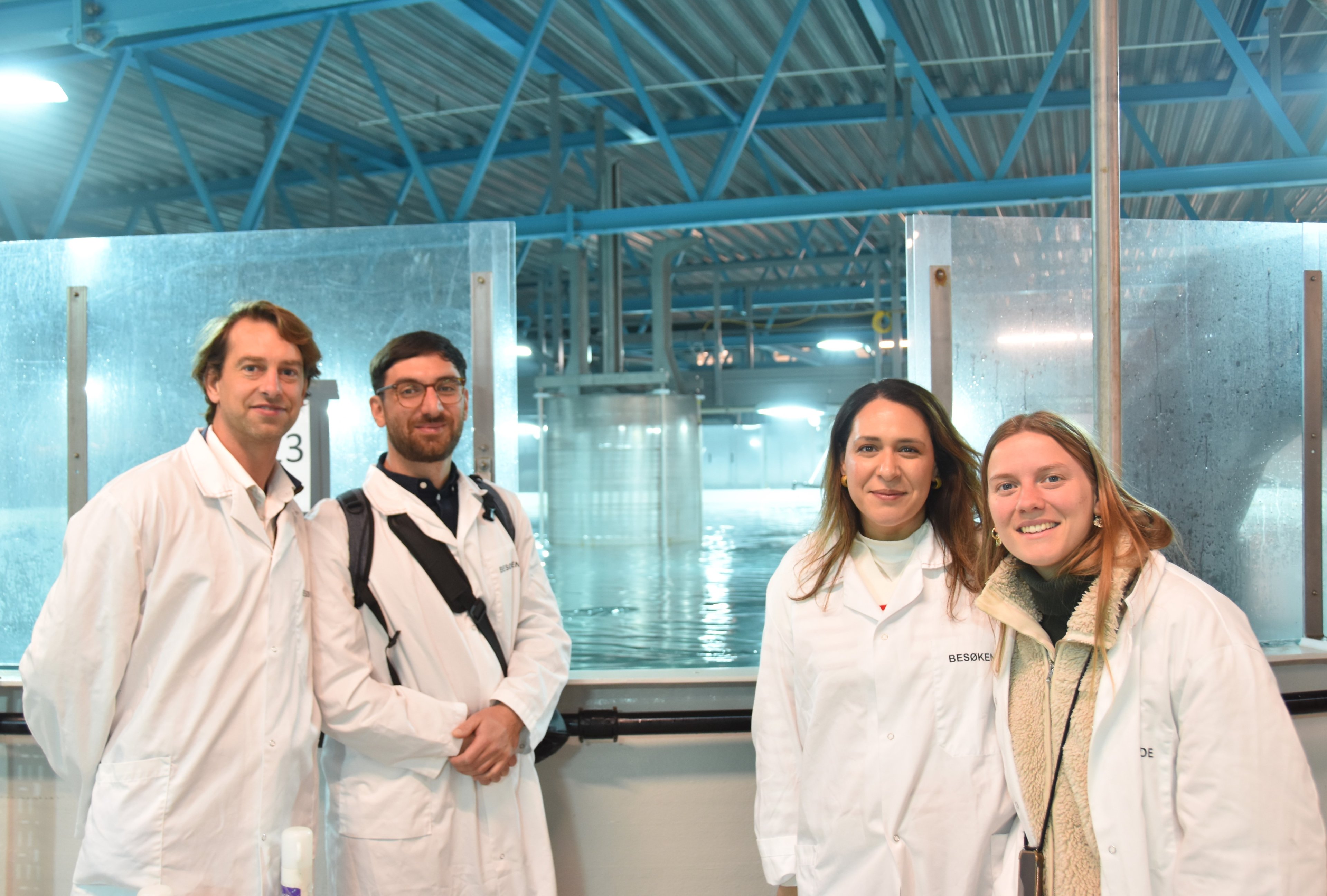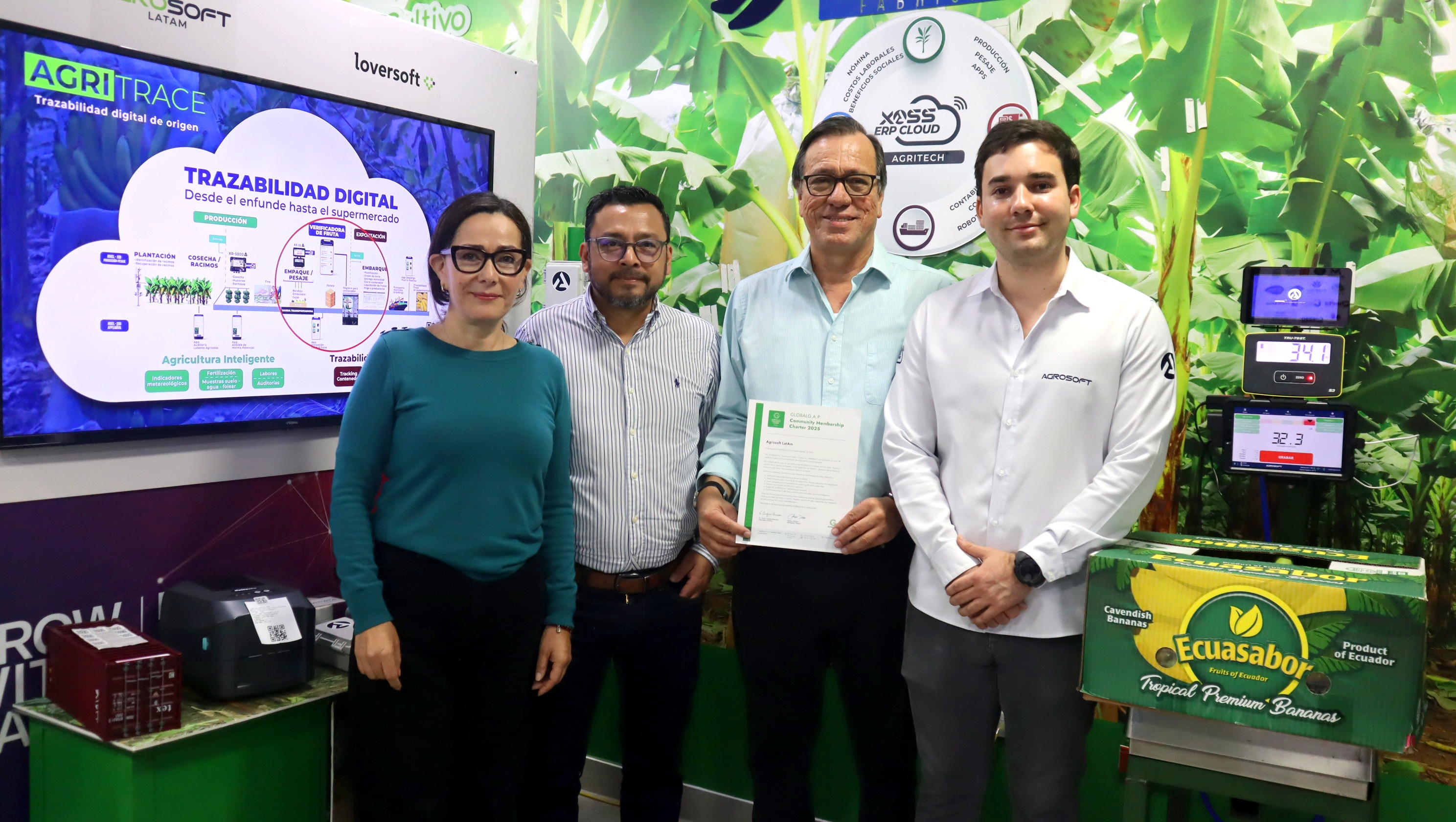26 September 2024
A meeting of the minds at the GLOBALG.A.P. SUMMIT 2024
The GLOBALG.A.P. SUMMIT 2024, held in Warsaw, Poland from 10–12 September, brought together industry leaders to “Engage, Image, and Transform” the future of global food supply chains. The SUMMIT fostered lively discussions on certification systems, sustainability goals, technological innovation in auditing, consumer trust, and smallholder integration. It underscored the power of collaboration, showing how collective efforts across the value chain can drive meaningful change for the agriculture and aquaculture sectors. Two weeks on, we reflect on the key topics from this meeting of the minds.
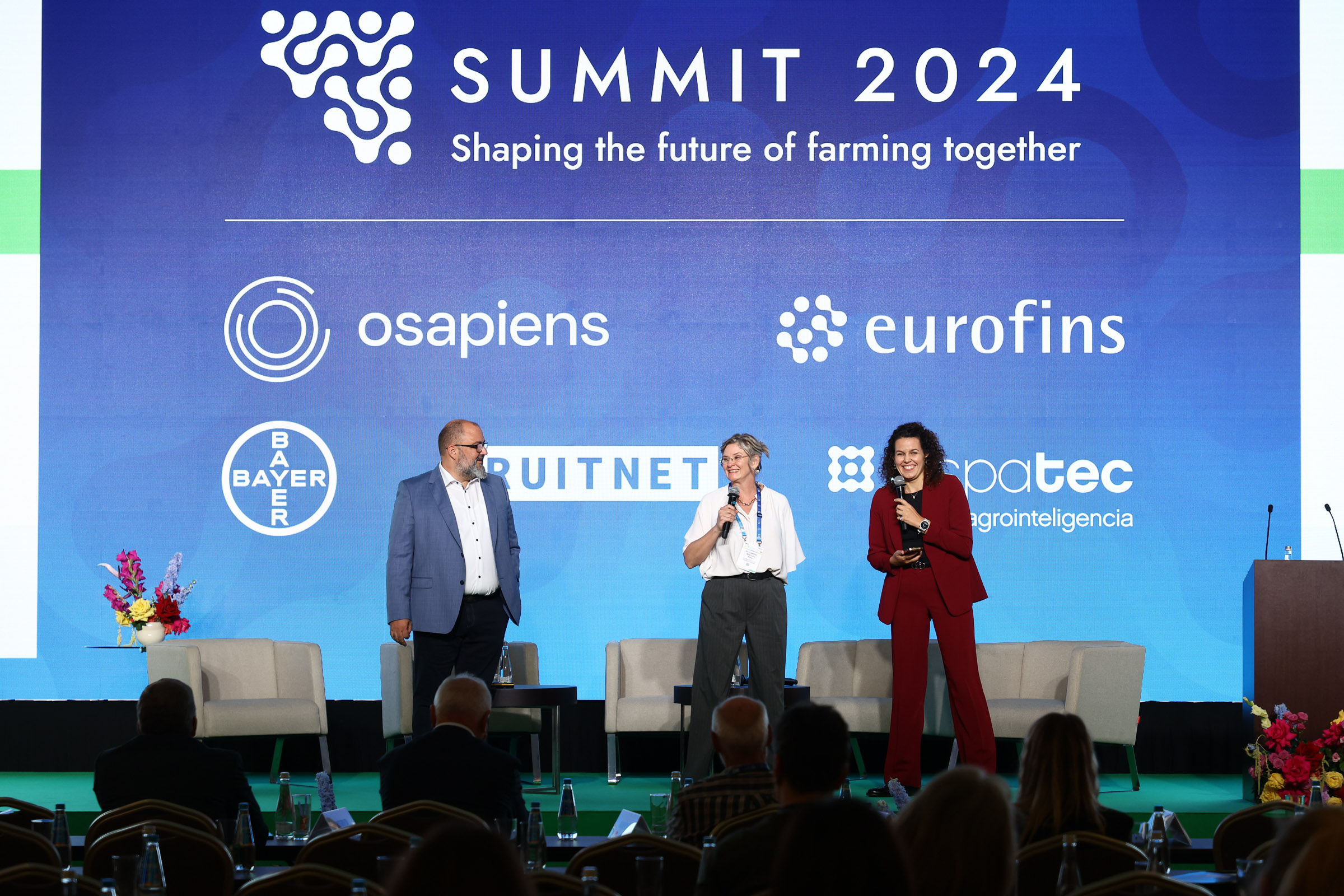
A meeting of the minds at the GLOBALG.A.P. SUMMIT 2024
A dynamic global landscape
The backdrop to the GLOBALG.A.P. SUMMIT 2024 was one of complex global challenges. While factors such as extreme weather events, economic shifts, inflation, and geopolitical tensions undeniably impact global supply chains, they also present a unique opportunity to innovate and reimagine its future.
With nearly 300 participants from 44 countries, the SUMMIT emphasized the potential for the agriculture and aquaculture sectors to rise to these challenges, not just to overcome them but to transform the industry for the better. By focusing on more sustainable solutions leveraging cutting-edge technologies, the participants envisioned a future where food systems are more resilient, transparent, and equitable.
The call for harmonization and simplification
One of the most pressing discussions centered around the need to harmonize the fragmented world of audits and certifications. With nearly 350 different certifications and labels in existence today, and some producers facing multiple audits each year, the system has become difficult for many stakeholders.
To streamline certification systems, collaboration is essential. Discussions at the SUMMIT highlighted the potential for digitalizing audits, increasing recognition across different certification bodies, and adopting combined auditing processes. The use of AI and other advanced technologies to analyze large volumes of data was seen as a key step in moving toward a more risk-based approach.
The future of auditing: AI, remote sensing, and continuous improvement
Technology and data innovation were front and center during discussions on the future of auditing. According to audience polls during the event, 71% of participants believe that AI can significantly improve the accuracy and efficiency of farm audits in the next five years, while 57% think remote sensing will have the greatest impact on agricultural auditing. Despite this optimism, 81% still felt that on-site inspections would remain a necessary part of the process.
The SUMMIT also highlighted concerns over potential biases in AI algorithms and issues related to data privacy and security. However, the overwhelming consensus was that new technologies will be critical in enabling validation at scale, ensuring compliance, and driving continuous improvement.
Sustainability and the future of green claims
Sustainability is not just an environmental issue: Increasingly, the focus is expanding to include human rights and social issues. Participants agreed on a clear need for industry-wide definitions and a common framework to support progress towards global sustainability goals.
Furthermore, it was acknowledged that while sustainability efforts should not become a competition between producers or retailers over who is "more sustainable”, there is still much work to be done in communicating the broader business benefits of such certification. As regulations around green claims become more stringent, attendees also noted that producers need more guidance in how to ensure they make valid claims on such topics, for example specific criteria that demonstrate sustainable practices.
Smallholders: A critical part of the solution
The SUMMIT also placed significant emphasis on the perspective of smallholder farmers. With approximately 1.2 billion people employed in agriculture globally—500 million of whom are smallholders—this group is vital for the world’s food supply. Yet, many face poverty and lack access to training, finance, and compliance resources. Discussions highlighted that only by engaging with smallholders can the industry work toward a unified approach and ensuring the sustainability of global food production.
However, to effectively support smallholders, it is essential to tailor solutions to their individual contexts. Recognizing the diverse capabilities and conditions across regions, participants highlighted the value of providing accessible support that meets specific needs. The discussions surrounding smallholders served as an important reminder that future policies and initiatives should thoughtfully address the challenges they encounter.
A guide to moving forwards
The GLOBALG.A.P. SUMMIT 2024 highlighted the immense challenges and opportunities facing global food supply chains. With technology, collaboration, and sustainability as key themes, the event underscored the need for collective action to ensure that the agricultural and aquaculture sectors can thrive in the years to come.
Looking forward, we are eager to continue these discussions and assess progress when we meet again at the next SUMMIT, announced for 2026.
